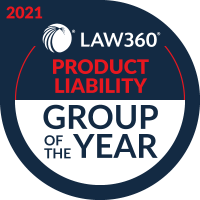Trevor Tan — November 15, 2018
Class action attorneys often seek to represent many thousand potential class members. Identifying them can sometimes pose a challenge. In some cases, class members can only be identified based on the defendant’s records.
But what if the defendant never kept records, lost track of them, or even intentionally destroyed them? Does that mean there can’t be a class action and the defendant benefits from its lax recordkeeping or wrongdoing?
The California Supreme Court has agreed to address these issues in a new case.
The Ascertainability Doctrine
For decades, California courts haven’t required the representative plaintiff to identify specific class members to show that the class is “ascertainable.” Instead, courts have interpreted “ascertainability” as requiring the class to be defined based on specific, objective criteria, so that class members can self-identify—i.e., determine if they have a right to recover by reading the description of the class.
The California Court of Appeal, Third Appellate District’s 2015 decision in Aguirre v. Amscan Holdings, Inc. illustrates this traditional view. The plaintiff sued a retailer for violating state law by collecting ZIP codes from purchasers who used credit cards. The court held that the class could be certified even though the defendant didn’t maintain records identifying its customers who paid with credit cards, because those customers could self-identify as class members.
The Sotelo and Noel Decisions
In Sotelo v. MediaNews Group, Inc., a wage and hour case from 2012, the First Appellate District departed from this traditional understanding. Rejecting the plaintiff’s argument that the class was ascertainable because it was sufficiently defined, the court held that no class could be certified because the plaintiff hadn’t shown how class members could be individually identified. The defendant didn’t keep records for some of the class members and therefore they couldn’t be given direct notice of the case.
In December 2017, the First Appellate District in Noel v. Thrifty Payless, Inc. extended the reasoning of Sotelo to a class action that sought damages for consumers who bought an inflatable swimming pool the defendant was alleged to have falsely advertised. When the plaintiff moved to certify a class, the defendant argued that its records couldn’t be used to identify the other swimming pool buyers. The trial court agreed, and the appellate court affirmed the denial of class certification.
The Noel court acknowledged that its decision appeared to conflict with Aguirre. But the court justified its conclusion by pointing to the importance of providing personal notice to protect the due process rights of absent class members.
Recent Developments
On February 28, 2018, the California Supreme Court granted review in Noel to address whether, at the pretrial stage of class certification, a plaintiff must show that there are records permitting the identification of class members. The case is now fully briefed; consumer advocacy and public interest groups, as well as retailer associations, have also weighed in.
As some of these groups have pointed out, requiring plaintiffs at class certification to prove that class members can be identified can prevent certification—meaning none of the class members receives any recovery. Practically speaking, then, whether ascertainability includes an identification requirement may decide the success or failure of many class actions, especially cases involving the kind of lower-priced products and services for which consumers and retailers are unlikely to keep receipts or detailed records.
Given how influential the California Supreme Court can be, its decision in Noel is likely to have significant implications not only for class action practice in California state courts, but also for the national debate about the ascertainability doctrine.
Our Commitment to Excellence
Girard Sharp LLP represents consumers, investors, and institutions in class actions and other complex litigation nationwide. Our class action lawyers have obtained multimillion-dollar recoveries for victims of unfair and deceptive practices in antitrust, financial fraud, and consumer protection matters against some of the country’s largest corporations (including Raymond James, John Hancock, Sears, Yahoo, and JP Morgan Chase). Girard Sharp LLP has earned top tier rankings from U.S. News and World Report for Securities and Class Action Litigation and was selected as a 2018 Elite Trial Lawyers finalist by the National Law Journal.
Trevor Tan is an associate with Girard Sharp LLP in San Francisco, California.





